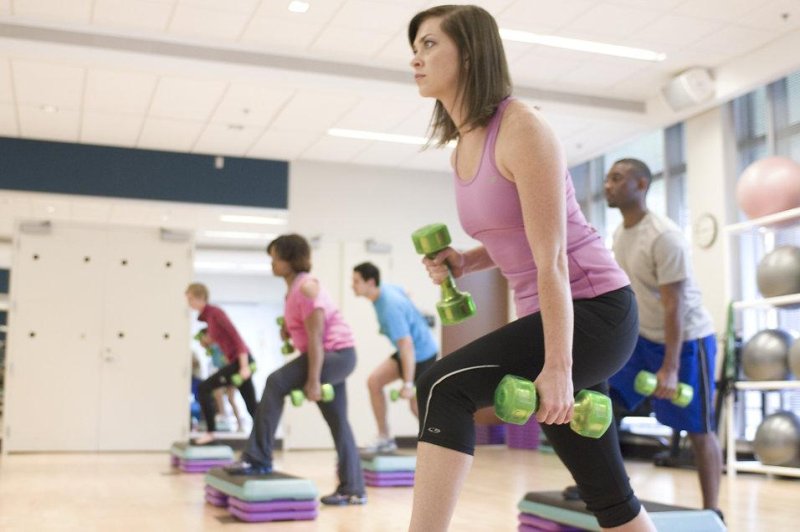Study finds competition may be better than encouragement at motivating exercise. Photo by the U.S. Centers for Disease Control and Prevention
PHILADELPHIA, Oct. 27 (UPI) -- Competition is a stronger motivator for exercise than friendly support, researchers from the University of Pennsylvania found in a study.
Scientists conducted the study to explore how social media and other online tools affect individual fitness activity. While friendly support may seem like a more effective way of encouraging people to improve their health, the research team says their findings suggest this may actually make people less likely to go to the gym.
"Most people think that when it comes to social media more is better," senior author Damon Centola explained in a press release. "This study shows that isn't true: When social media is used the wrong way, adding social support to an online health program can backfire and make people less likely to choose healthy behaviors."
Centola added that social media use can help boost fitness activity when used correctly. During the study, the research team analyzed 800 participants as they went through an 11-week exercise program, which included fitness mentoring and nutrition advice. The program was managed through a website designed by the researchers.
Fitness activities in the experiment included weightlifting, running, yoga and other exercises. Participants who attended the most classes won prizes.
The research team analyzed the test subjects by dividing them into four groups, which included individual competition, team support, team competition, and a control group allowed to attend any class at their own leisure.
Competition-motivated groups were found to outperform the others, boasting a 90 percent higher attendance rate than the control group. Individual and team competition programs were similarly effective at encouraging the participants to exercise. The team's findings were published in the journal Preventative Medicine Reports.
"Supportive groups can backfire because they draw attention to members who are less active, which can create a downward spiral of participation," Centola concluded. "Competitive groups frame relationships in terms of goal-setting by the most active members. These relationships help to motivate exercise because they give people higher expectations for their own levels of performance."















